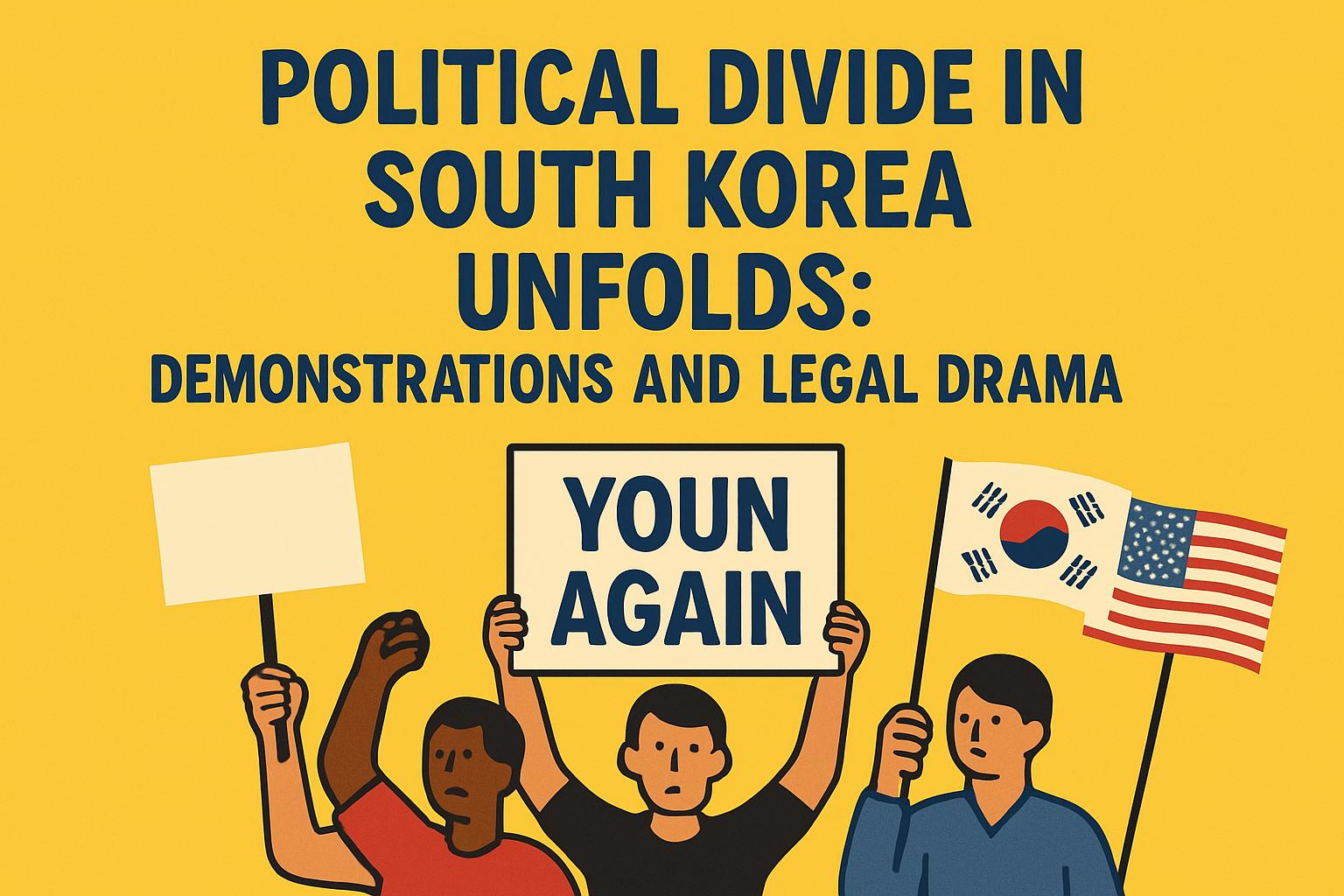In the bustling streets of Seoul, the echoes of political disenchantment and defiance ring loudly through the air. The People Power Party, a prominent force within South Korea’s conservative faction, has unfurled a wave of large-scale protests capturing both local and international attention. These demonstrations manifest support for former Prime Minister Yoon Suk Yeol, a figure currently embroiled in legal controversies.
Unwavering Support Amidst Legal Turmoil
Despite his resignation and ongoing detention over allegations of sedition, Yoon Suk Yeol remains a rallying point for conservatism in a country often caught between the polarities of political ideologies. Protestors ardently chant “Yoon Again” and “Only Yoon”, simultaneously waving both American and Korean flags—a potent symbol of their unwavering faith in Yoon’s leadership.
Intriguingly, the protests coincide with the intensifying scrutiny over Yoon’s wife, Kim Keon Hee, the former First Lady of South Korea. She faces a cacophony of corruption charges linked to infamous religious leader Han Hak Ja, head of the Unification Church.
The Unification Church and Legal Battles
Han Hak Ja, widow of the church’s founder and central figure in this unfolding narrative, emerged from extensive legal questioning denying bribery allegations. These charges follow claims that she bribed Kim Keon Hee with luxury gifts—accusations both she and Kim’s defense firmly refute.
The continuing case highlights a volatile nexus of religion, politics, and influence. Han Hak Ja’s denials came after her initial reluctance to appear for questioning, citing health issues. This case stretches beyond South Korea’s borders, stirring memories of global incidents involving the church, including controversies in Japan tied to the legion of loyal followers and its substantial financial dealings.
Political and Social Repercussions
While Kim Keon Hee battles legal scrutiny—accused of accepting opulent bribes including designer handbags and diamond necklaces—the broader implications reflect deeper schisms within South Korean society. The investigation casts a spotlight on the potential misuse of political power for personal gains, invoking broader debates over integrity and governance.
As divisions deepen, the resonance with global political climates is hard to dismiss. Across continents, similar ideological divides brew tension, as traditional left-right dichotomies struggle under the weight of modern political identities.
The unfolding events in South Korea present a microcosm of the global struggle between entrenched political ideologies. As the metropolis of Seoul witnesses these tumultuous demonstrations, the nation—and indeed the international community—pauses to reflect on the hypocrisies and heroics that characterize political life.

![[News] Bitcoin at a Turning Point? 10x Research Signals a Bullish Macro Shift Ahead](https://cryptoexplores.com/wp-content/uploads/2025/06/new20250616.jpg)
![[News] Binance Lists $HOME, the Gas-Free, Bridge-Free All-in-One DeFi App](https://cryptoexplores.com/wp-content/uploads/2025/06/news20250617.jpg)